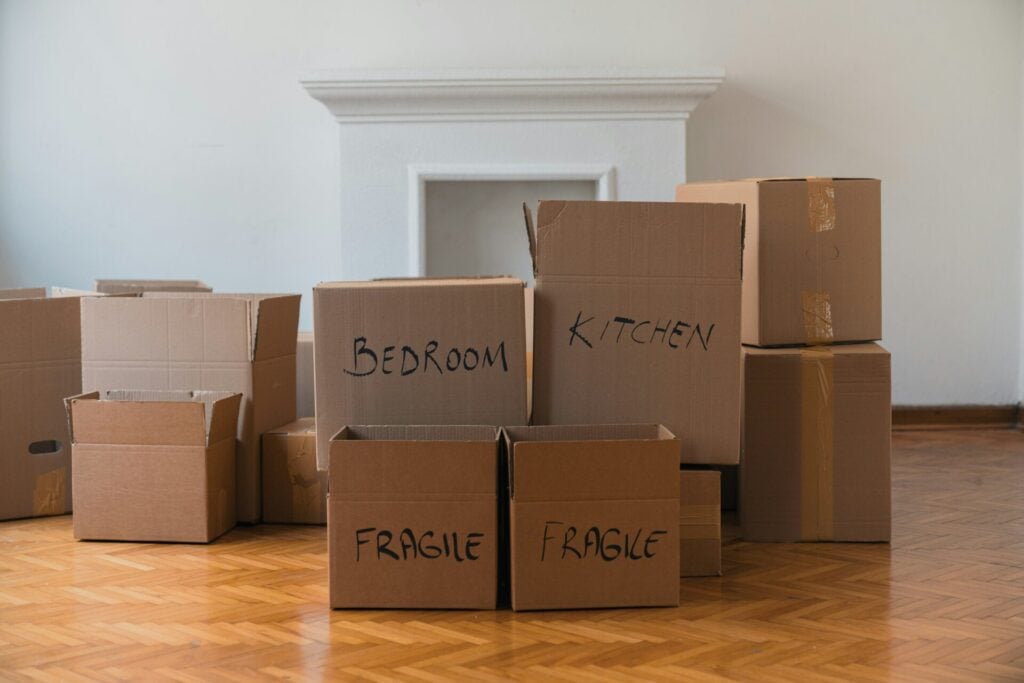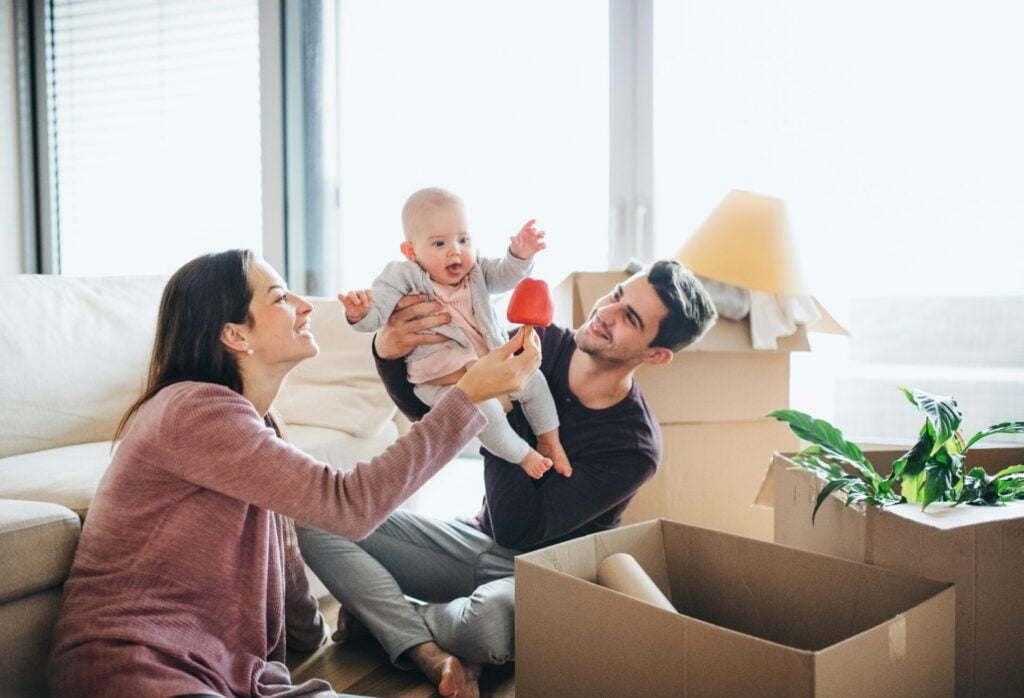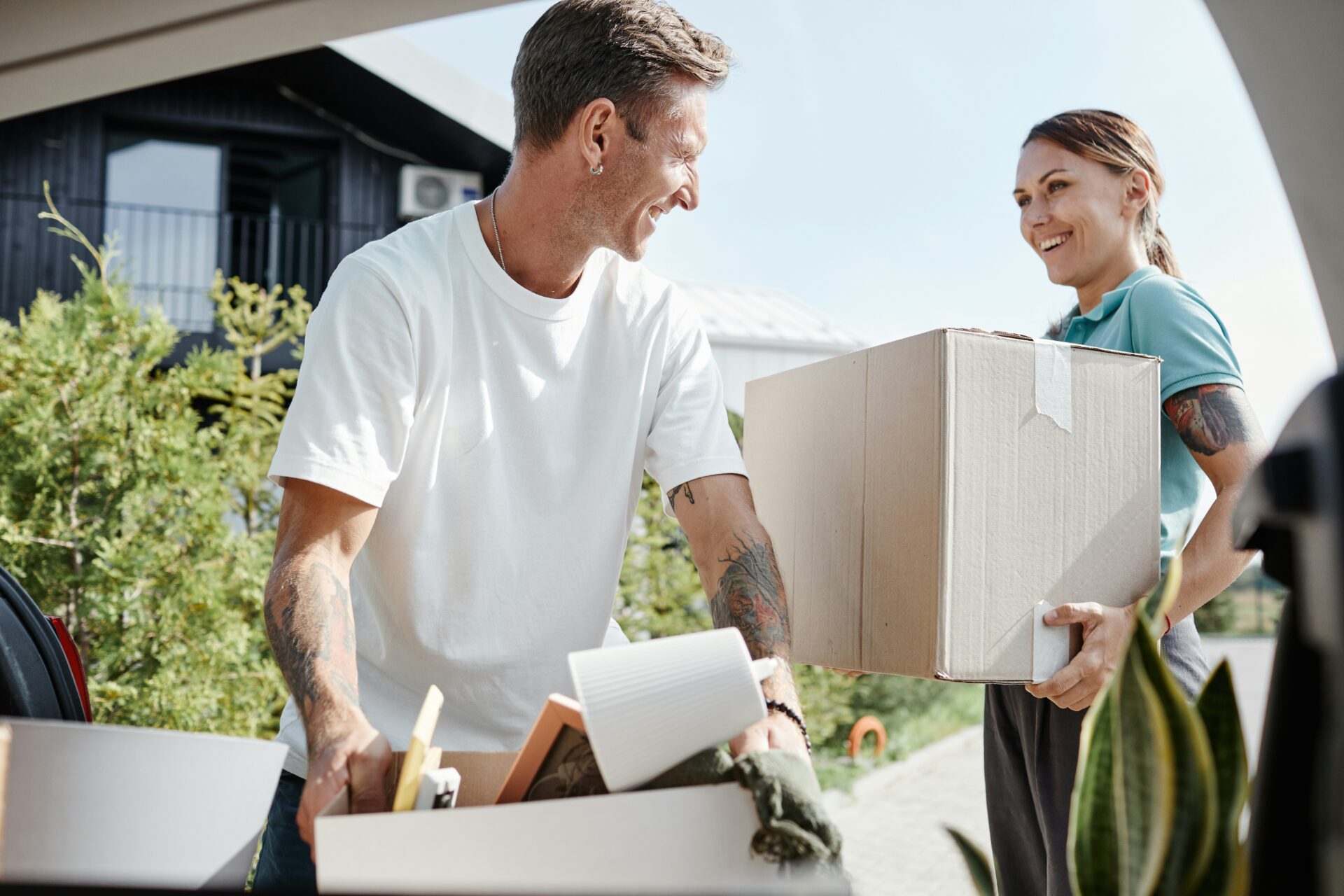Settling into a new place is exciting, but it comes with many tasks that can feel overwhelming. That’s why having the right moving tips can make all the difference. Whether the move is local or across state lines, preparation makes a significant difference – and it’s also a chance to make some eco-conscious choices. From choosing reusable packing materials to donating belongings you no longer need, the way you plan can reduce waste and lower your carbon footprint.
A well-structured, eco-friendly approach lets you focus on adjusting to your surroundings instead of rushing through last-minute tasks. The right support service can simplify transport, ensure fragile items are protected, handle all the heavy lifting, and prevent unnecessary stress… all with minimal environmental impact.
So, here’s to starting your next chapter equipped with moving tips that bring comfort, confidence, and a clear conscience.
Moving Tips for Settling In Quickly

Create a Detailed Moving Checklist
A structured checklist is one of the most effective moving tips to keep the process on track. Start by noting down key tasks such as booking services, confirming dates, and arranging supplies. Break larger jobs into smaller actions, so they are easier to complete. Set specific deadlines for each task to prevent last-minute stress. Keep the checklist visible, whether on paper or a digital device, so you can update it as needed. Include reminders for address changes, utility transfers, and service cancellations – and don’t forget to responsibly donate or recycle any unwanted items. Having everything listed in one place keeps you focused and ensures nothing gets missed while transitioning to your new residence.
Choose the Right Moving Partner
Selecting the right team is one of the most important moving tips for a smooth transition. Look for a company offering tailored services like careful handling of delicate items, climate-controlled transport, and short-term or long-term storage options. If possible, choose movers who use fuel-efficient vehicles, offer reusable crates, or have recycling programs for packing materials. They should also provide clear timelines, transparent pricing, and secure packaging methods.
For those going a long distance, working with experienced interstate movers can help streamline the process, making it less stressful, more efficient and less wasteful. These specialists often handle the entire journey, from loading to final placement, so you can focus on other aspects of settling in. Research reviews, ask questions and ensure they align with your values before making a choice.
Declutter Before Packing

Sorting through your belongings early helps reduce the load and saves time on moving day. Go room by room and decide what to keep, donate, sell, or recycle. Items you no longer use or need will only take up space and add weight. Reducing clutter not only cuts costs but also makes it easier to arrange your new place. You may find it helpful to create separate piles for different categories, like keep, give away, and discard. The fewer items you bring, the quicker you can set up in your new space, and the more organised the process will feel.
Pack Strategically
Good preparation prevents damage and confusion later. Use sturdy reusable boxes and quality biodegradable or recyclable wrapping materials for fragile belongings. Label each box clearly with its contents and the room it belongs to. This makes it easier to place everything correctly when you arrive. Keep a small bag or box for essentials like toiletries, chargers, and a change of clothes so they’re easy to access right away. Group similar items together to avoid losing smaller pieces in larger containers. Strategic, eco-conscious preparation not only reduces the risk of damage but also helps your move leave a lighter footprint.

Plan for Moving Day Logistics
One of the best moving tips is to arrange the practical details in advance, as this can save time and stress on the big day. If you live in an apartment or gated community, check if you need to reserve elevators or secure entry access. Make sure parking for the moving truck is available and close to your door. Confirm times with your service provider so everyone is ready when needed. Have a basic toolkit handy for quick furniture adjustments. Preparing these details ahead of time keeps the process on track and helps prevent unnecessary delays once the move is underway.
Prepare Your New Place Before Arrival
Getting your new residence ready in advance helps the first days run more smoothly. If possible, visit beforehand to clean, check the lighting, and test the water supply. Make sure electricity and gas are active so appliances work upon arrival. Look for any small fixes that can be handled quickly, such as tightening loose handles or replacing light bulbs. If the floors need cleaning or carpets require treatment, doing it before furniture arrives saves effort later. Taking time to prepare the space allows you to arrange belongings right away without dealing with avoidable disruptions in your daily routine.

Keep Important Documents Handy
Essential paperwork should never be packed deep in boxes. One of the most important moving tips is to keep identification, moving contracts, lease or purchase agreements, insurance documents, and medical records in a separate, easily accessible folder. Digital backups are useful, but physical copies can be critical if you encounter network issues. Carry this folder with you rather than loading it into the transport truck. Having these documents on hand avoids delays if you need to confirm delivery details, update your address, or provide proof of residence. Staying organized with paperwork supports a smoother transition and offers peace of mind during the process.
Unpack in Priority Order
Setting up essential areas first makes the adjustment easier. Start with the kitchen so you can prepare meals without difficulty, then move to the bathroom and sleeping areas. Organizing these spaces early helps you settle into a comfortable routine while working through the rest of your belongings. Break the process into sections, focusing on one room at a time instead of scattering efforts. Use labelled boxes to place items where they belong right away. Prioritizing in this way helps maintain order and prevents unnecessary mess during the initial days in your new environment.
Stay Flexible and Patient
Even with careful preparation, unexpected issues can happen. A delivery might be delayed or a repair might take longer than planned. Staying calm and adapting to these challenges reduces stress. Keep a backup plan for essentials such as meals, temporary furniture, or basic cleaning supplies. Remind yourself that settling in is a gradual process. Accepting that not everything will be perfect immediately can make the experience more enjoyable. With a steady pace and positive mindset, you can address each task as it comes without feeling overwhelmed.
A smooth transition into a new place depends on preparation, the right support, and patience. By creating a clear plan, working with trusted service providers, and handling belongings with care, you can avoid unnecessary stress. Prioritizing essential areas first and getting to know your surroundings helps you feel comfortable sooner. While challenges may arise, staying flexible makes the process more manageable. With thoughtful steps, you can settle in confidently and enjoy your new environment without feeling rushed.









